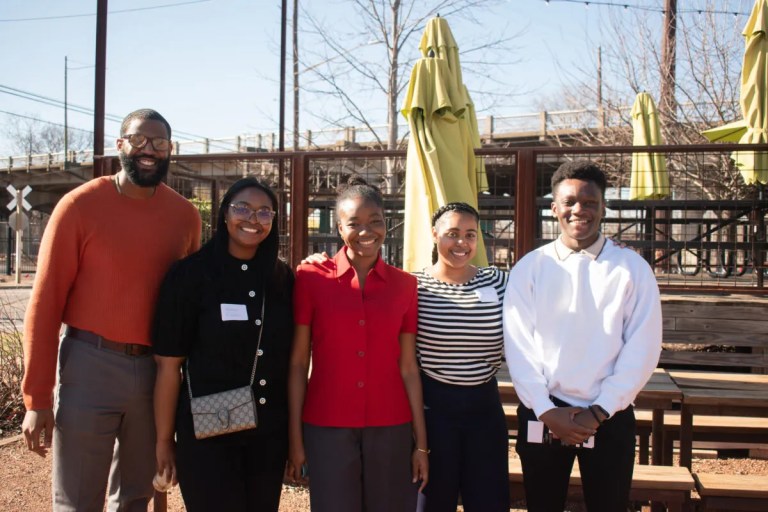Reviewed by: Cindy Martin
What Alabama will lose with the closing of Birmingham-Southern College on May 31
Reading time: 5 minutes

Yesterday, thousands of students, professors, staff, parents, alumni and other supporters of Birmingham-Southern College took to social media to share their grief.
After 168 years in Alabama, Birmingham-Southern College will forever close its doors on May 31, 2024—and Alabama will never be the same.
During my sophomore year at Southern, I took a seminar focused on the history of Birmingham. As a Nashville native and newcomer to the city, I picked a research topic that I knew very little about—the rise and fall of the magnificent Birmingham Terminal Station.
As the semester went by, I became fascinated with the station; particularly its design, reminiscent of the Byzantine-era Hagia Sophia. The station was unparalleled in its beauty and unlike anything Birmingham had ever seen—or likely ever see again.
However, there was one thing I couldn’t wrap my head around. Why did people allow such a one-of-a-kind landmark to be torn down?
Clearing up misconceptions about Birmingham-Southern College



In the wake of yesterday’s announcement, I’ve seen many misconceptions about the college and its reasons for closing.
“BSC is closing because it’s in a dangerous area of town.” I’d like to nip this one in the bud right off the bat. During my four years on campus, I never once felt unsafe when out and about in the communities of Bush and College Hills. Ask any other graduate, and you’ll hear the same.
“BSC is closing because of its declining enrollment.” While it is true that Southern’s current student population is roughly half what it was when I graduated in 2019, declining enrollment is a symptom—not the cause. After Southern announced its financial troubles in late 2022, many students decided to transfer and a large portion of prospective students began looking elsewhere.
“The state has no business using public funds to help a private college.” In a vacuum, I’d agree with you. However, it is a fact that private colleges in Alabama receive public funds regularly. In 2023, then-Senator Richard Shelby secured a $35M federal grant for Spring Hill College, a private Catholic college in Mobile.
Additionally, the 2023 Education Trust Fund budget—which had a $2.2 billion surplus—allocated $13,151,435 for Tuskegee University and $1,054,175 for Talladega College, two private HBCUs in Alabama.
In a state where significant funds were almost reallocated from the Education Trust Fund to finance private prisons and a waterpark, it’s hard not to feel bitter that Southern was given the cold shoulder—but I’m trying.
Alabama is losing one of its best liberal arts colleges.

When Birmingham-Southern College closes its doors on May 31, hundreds of students and thousands of alumni will lose their “home away from home.” Many of those—myself included—would never have considered an education in Alabama if not for Southern, much less living in Alabama post-graduation.
On June 1, bright minds from around the country and the world will have one less reason to consider Alabama. For organizations that aim to attract and retain talent in the state, this will be a significant hurdle to overcome.

Beyond that, the loss of Southern will have a negative material impact on Alabama for years to come.
- Alabama will lose $6.8M in tax revenue from Southern each year.
- Birmingham and Jefferson County will lose $7M in tax revenue from Southern each year.
- Hundreds of employees, many of them residents of Bush and College Hills, will be out of a job.
- Prospective students in search of a quality liberal arts education will look elsewhere, taking their tuition monies to other states.
What will happen to Birmingham-Southern College on June 1?

When Southern closes its doors for the final time on May 31, city and state leaders will have an even bigger problem on their hands. What do you do with a 192-acre property smack dab in the middle of a residential part of town?
- Will the campus and its 45 buildings—many of which date to the early 1900s—be razed and sold off to a developer?
- Will the property be sold to another college or university as a satellite campus?
- Or will the campus sit abandoned for decades, like the nearby Carraway Hospital, until local government is forced to contribute millions to demolish the blighted property?
Today, 55 years after it was torn down, the area where Birmingham Terminal Station stood for 60 years remains an empty lot.
I don’t know what the future holds for my alma mater’s beautiful, 200-acre campus, but I do know this:
On Saturday, June 1, 2024, Alabama will lose an institution that has changed countless lives. And we will never get it back.
Forward, ever.



